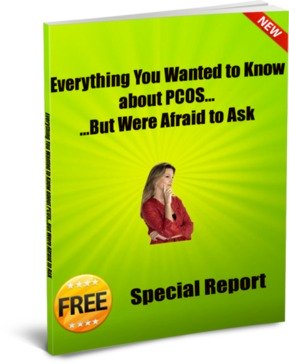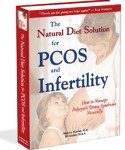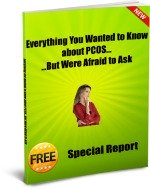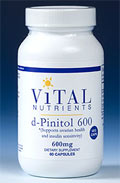PCOS Review Newsletter #146
Is "Leaky Gut Syndrome" Making You Fat?
When's the last time your doctors asked questions about your bowel function? Did he or she run any lab tests to assess your gut function?
Probably not. After all, your gut has nothing whatsoever to do with your ovaries and PCOS, right?
Well, not quite.
The Sahlgrenska Academy at the University of Gothenburg in Sweden has come up with some very interesting research that may be relevant to your situation, especially if you have an issue with belly fat that won't go away.
They studied the "intestinal permeability" of 55 overweight women. CAT scans showed that the women with intestinal permeability problems also had the most visceral abdominal fat, and the highest amount of fat in their livers.
We're not talking about fat just underneath the skin. We're talking about the dangerous fat which envelops your abdominal organs and infiltrates your liver. This is the fat you should be worried about.
By the way, it's estimated that one of every two women with PCOS has fatty infiltration of the liver.
This study is the first we've seen that suggest a leaky gut could contribute to unhealthy belly fat and liver fat.
So just what is a permeable intestine, anyway?
The lining of your GI tract is the largest surface that interfaces between the inside of your body and the outside. This lining is made up of highly specialized cells that do very complicated work. They must screen out all the bad stuff and transfer all the good stuff to the insides of your body.
For example, they want to screen out the bacteria in your gut while absorbing miniscule food particles.
But sometimes, the cells in your gut wall become damaged or dysfunctional. When this happens, unwanted materials leak through the wall into your body. These unwanted materials could be just about anything, such as larger food particles.
Your immune system is constantly vigilant and detects these unwanted materials, and starts attacking them. The result is chronic inflammation and a diverse array of apparently unrelated symptoms that never seem to go away, including various "autoimmune diseases" that attack internal organs (like your liver) or further damage your intestinal wall.
Bottom line: You need to care for your gut just like you take care of your skin!
First, you can avoid consuming anything that could lead to intestinal damage. Some clinicians think that commonly consumed foods like milk and wheat contribute to this damage. This is one reason why there is no dairy or gluten (wheat, rye, barley) in The Natural Diet Solution for PCOS and Infertility.
Second, don't unnecessarily take antibiotics, which destroy the friendly bacteria in your intestines. You can also reduce your exposure to antibiotic-laden meats and poultry.
Third, you can support your intestinal wall with supplements such as probiotics, glutathione, lipoic acid, EPA/DHA, and others.
Fourth, you can ask your doctor for a simple "intestinal permeability test". You swallow a test material and then give a urine specimen. Simple.
Good gut health is an overlooked approach that is effective in reducing PCOS symptoms.
Source:
Gummesson A et al, Intestinal Permeability Is Associated With Visceral Adiposity in Healthy Women, Obesity (Silver Spring). 2011 Aug 18 [Epub ahead of print]
PCOS Health Review
This free newsletter gives you original and immediately usable information to help you deal with PCOS.
Get the latest research, tips for improving your health, answers to questions, success stories, and more!
Your e-mail address is totally secure. We will never misuse your information.
Enter Your Email Above to Subscribe Today
and Get Your Questions Answered in this Free Special Report!





